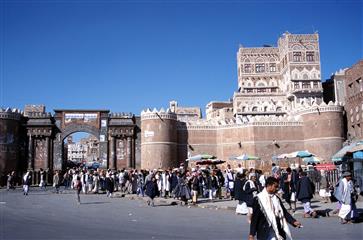

Worldwide Services
Yemen


Activities

Worldwide Services medical volunteers are working on the island of Socotra, alongside Yemeni staff in the hospital of Hadiboh, the only hospital on the island of Socotra. They train and mentor the local staff, and they provide specialists’ services for which there is no Yemeni manpower on the island yet. They also visit health centers in Qalansia and Noged, to train and encourage the local staff there to provide quality services.
News

A group of young new midwives, all from Socotra, have just finished their three years training in Mukalla. From the Director of Health of Socotra they all received a complete set of instruments for the purpose of home deliveries.



Yemen is one of the oldest centers of civilization in the Near East. Its capital and largest city is Sana'a. Yemen's territory includes over 200 islands, the largest of which is Socotra, about 354 km (220 mi) to the south of mainland Yemen. It is the only state in the Arabian Peninsula to have a purely republican form of government. Yemen was the first country in the Arabian peninsula to grant women the right to vote. Yemeni unification took place on 22 May 1990, when North Yemen was united with South Yemen, forming the Republic of Yemen.
The majority of Yemen's population is divided into tribal groups, especially in the northern areas of the country where 85% of local residents belong to various tribes. There are also small groups of peoples of Turkish/Ottoman origin in urban areas. Roughly 66% of the population are Sunni Muslims following the Shafi'i school while 34% adhere to the Zaydi Shia branch of Islam with small minorities of Ismali Muslims.
A Shia rebel movement, the Houthis, emerged in the early 2000s, claiming it would fight against what it saw as the marginalization of the Shi’ites of the Zaydi sect, which prevails in the Yemeni highlands.